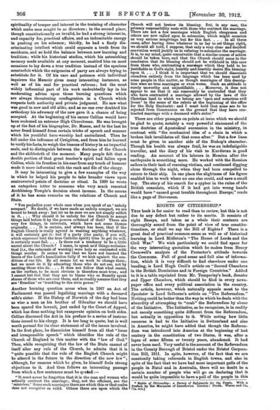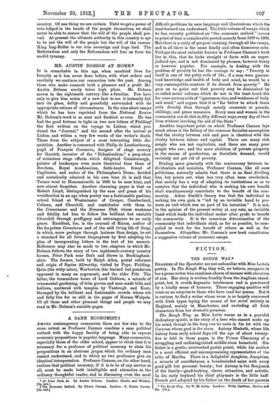RIGHTS OF CITIZENSHIP.* THIS book is far easier to read
than to review, but this is not due to any defect but rather to its merits. It consists of eight Essays, and taken as a whole their contents are thoroughly sound from the point of view of true constitu- tionalism, or shall we say the Bill of Rights ? There is a. great deal of practical common-sense as well as of historical learning in Lord ltlidleton's "The House of Lords and the Civil War." We wish particularly we could find space for the very interesting quotation which he makes from Henry Cromwell's analysis of the Protector's attitude towards the Commons. Full of good sense and full also of informa- tion, which it is very difficult to find elsewhere under one heading, is Lord Hugh Cecil's article on "Second Chambers in the British Dominions and in Foreign Countries." Added to it is a table reprinted from Mr. Temperley's book, Senates and Upper Chambers, which should be filed in every news- paper office and every political association in the country. The article, however, which naturally appeals most to the Spectator is Lord Selborne's article on ." The Referendum." Nothing could be better than the way in which he deals with the absurdity of attempting to "crab" the Referendum by abuse of the Initiative. The Initiative, as he recognizes, is in reality not merely something quite different from the Referendum, but actually in opposition to it. While noting how little recourse is had to the Initiative in Switzerland and also in America, he might have added that though the Referen- dum was introduced into America at the beginning of last century in the constitution of two States, it was, after a lapse of some fifteen or twenty years, abandoned. It had never been used. Very useful is the account of the Referendum in the County Borough of Bristol under the Bristol Corpora- tion Bill, 1911. In spite, however, of the fact that we are constantly taking referenda in English towns, and also in spite of the fact that we have had most important polls of the people in Natal and in Australia, there will no doubt be a. certain number of people who will go on declaring that it would be quite impossible to have a poll of the people in this • Rights of Oitisenship: a Survey of Safeguards for the People. With a Preface by the Marquess of Lansdowne. London: Predk. Warne and Co. (Is. net.] country. Of one thing we are certain. Until we get a power of veto lodged in the hands of the people themselves, we shall never be able to ensure that the will of the people shall pre- vail. At present the ultimate authority in this country is apt to be not the will of the people but the will of the caucus. King Log-Roller is our true sovereign and liege lord. The Referendum and only the Referendum will free us from his sordid tyranny.



















































 Previous page
Previous page